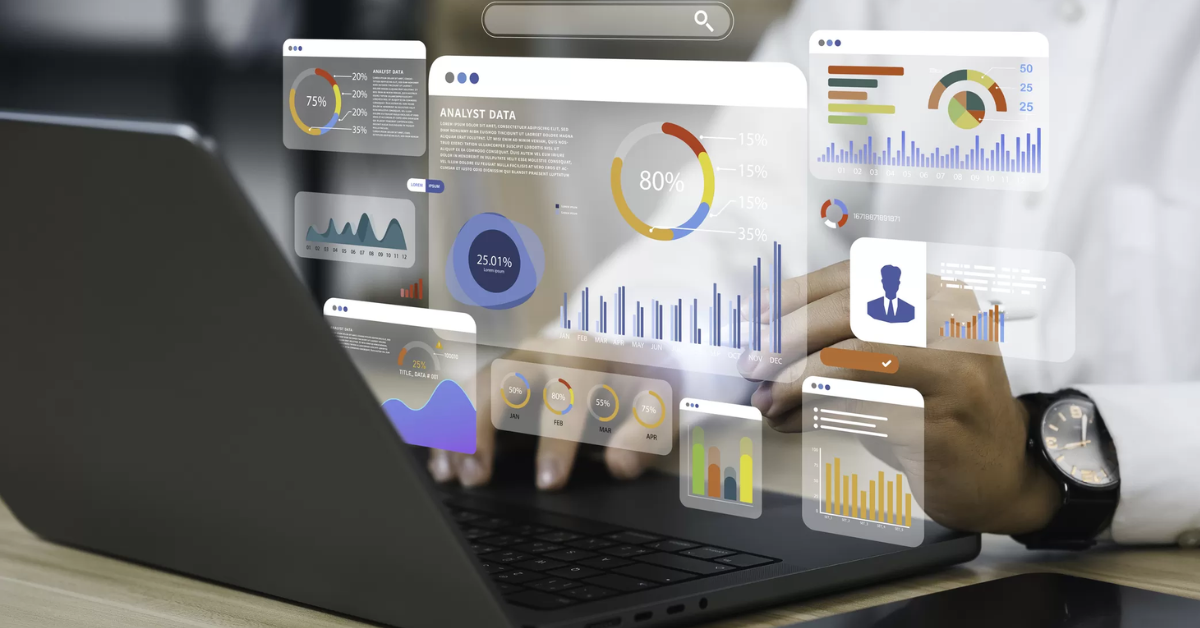B2B CRM Software: The Key to Smarter Business Growth
In the dynamic world of B2B sales and marketing, B2B CRM Software has become indispensable for companies aiming to enhance their customer relationships and accelerate business growth. This specialized software focuses on managing complex business-to-business interactions, helping organizations track leads, optimize sales pipelines, and build long-term partnerships with clients.
Using B2B CRM software transforms how businesses operate, enabling teams to work smarter and close deals faster by leveraging data-driven insights and automation.
Understanding B2B CRM Software
B2B CRM software (Business-to-Business Customer Relationship Management software) is designed specifically to cater to the unique needs of businesses selling products or services to other companies. Unlike B2C CRMs which target individual consumers, B2B CRM software handles more complex sales processes that typically involve multiple stakeholders, longer sales cycles, and higher transaction values.
This software centralizes all customer information in one platform, making it easier for sales, marketing, and support teams to collaborate and provide personalized experiences to business clients.
Essential Features of B2B CRM Software
Effective B2B CRM software includes features tailored to meet the challenges of B2B sales:
Lead and Contact Management
Managing a pipeline full of business leads requires sophisticated tracking tools. B2B CRM software allows users to capture, organize, and prioritize leads efficiently. It also stores detailed contact information, interaction history, and company profiles to facilitate better communication.
Sales Pipeline and Deal Tracking
With longer and more complex sales cycles, tracking each deal stage is critical. B2B CRM software provides a visual sales funnel that helps sales teams monitor progress, forecast revenue, and identify any obstacles in the pipeline.
Marketing Automation and Campaign Management
Integration of marketing tools within B2B CRM software empowers businesses to automate email campaigns, segment their audience, and nurture leads with personalized content that drives engagement.
Account-Based Management
Because B2B sales often revolve around entire organizations rather than individual buyers, B2B CRM software supports account-based management, enabling companies to tailor strategies and communications to each business client.
Advanced Reporting and Analytics
Data insights are key to optimizing sales and marketing efforts. B2B CRM software comes equipped with customizable dashboards and detailed analytics to track KPIs, measure campaign effectiveness, and improve decision-making.
Seamless Integrations
Modern B2B CRM software integrates smoothly with other business tools such as email platforms, ERP systems, customer support software, and collaboration apps, ensuring a connected and efficient workflow.
Why Your Business Needs B2B CRM Software
Implementing B2B CRM software can provide significant advantages:
-
Improved Customer Relationships: Detailed client data helps build trust and fosters long-term partnerships.
-
Increased Sales Efficiency: Automation reduces manual work, freeing up sales reps to focus on closing deals.
-
Better Collaboration: Centralized data promotes alignment between sales, marketing, and customer service teams.
-
Accurate Sales Forecasting: Real-time insights allow for better resource allocation and goal setting.
-
Higher Conversion Rates: Personalized outreach nurtures leads through the sales funnel more effectively.
How to Choose the Best B2B CRM Software
Selecting the right B2B CRM software is crucial for your business’s success. Consider the following factors:
Scalability and Flexibility
Your CRM should grow with your business. Choose software that offers flexible pricing and features that can scale as your customer base expands.
Customization Options
Every business has unique workflows. Look for B2B CRM software that allows customization of fields, workflows, and reports to suit your specific processes.
User-Friendly Interface
A simple and intuitive interface encourages adoption among your team, reducing training time and increasing productivity.
Industry-Specific Solutions
Certain industries may require specialized CRM features. Consider B2B CRM software designed to address your sector’s needs, such as manufacturing, finance, or technology.
Data Security and Compliance
Protecting client information is critical. Ensure your B2B CRM software provider complies with data protection regulations like GDPR and offers robust security measures.
Cloud-Based vs On-Premise B2B CRM Software
Most businesses prefer cloud-based B2B CRM software for its accessibility, ease of updates, and lower upfront costs. Cloud CRM allows remote teams to stay connected and data to be accessed anytime from anywhere.
On-premise solutions offer more control over data and can be customized deeply but often require significant IT resources and investment. Assess your business needs and infrastructure before making a choice.
Best Practices for Implementing B2B CRM Software
To maximize the benefits of B2B CRM software, follow these best practices:
-
Define clear business objectives for your CRM implementation
-
Clean and organize existing customer data before migration
-
Train your teams thoroughly on the new system’s features
-
Start with core features and gradually introduce advanced tools
-
Monitor performance and collect feedback for continuous improvement
Common Challenges Addressed by B2B CRM Software
B2B CRM software tackles several pain points commonly faced by businesses, including:
-
Disjointed sales and marketing communication
-
Difficulty tracking multiple contacts within one company
-
Managing long sales cycles with multiple decision-makers
-
Inconsistent customer engagement strategies
-
Lack of actionable data and reporting tools
Addressing these challenges leads to smoother operations and more predictable revenue growth.
The Future of B2B CRM Software
The landscape of B2B CRM software is evolving rapidly with innovations such as artificial intelligence (AI), machine learning, and predictive analytics. These advancements allow companies to anticipate customer needs, prioritize high-value leads, and automate routine tasks with greater precision.
Additionally, mobile CRM apps, voice assistants, and enhanced integrations with other business tools will continue to improve user experience and operational efficiency.
FAQs About B2B CRM Software
What distinguishes B2B CRM software from B2C CRM software?
B2B CRM software is tailored for business-to-business transactions, handling longer sales cycles and multiple contacts per account, whereas B2C CRM focuses on individual consumer relationships and high-volume transactions.
How much does B2B CRM software cost?
Costs vary widely depending on features, number of users, and deployment type. Cloud-based options often charge monthly fees per user, ranging from $20 to $150 or more.
Can small businesses benefit from B2B CRM software?
Yes. Even small businesses gain from B2B CRM software by improving organization, automating follow-ups, and better managing client relationships.
How long does it take to implement B2B CRM software?
Implementation can take from a few days to several weeks, depending on customization needs and company size.
Is training required to use B2B CRM software effectively?
Yes, training is essential to ensure teams understand the software’s capabilities and use it to its full potential.
Conclusion
B2B CRM software is a powerful tool that drives smarter business growth by improving how companies manage their client relationships and sales processes. Its ability to centralize data, automate workflows, and provide valuable insights makes it indispensable in today’s competitive B2B market.
By choosing the right B2B CRM software and following best practices for implementation, businesses can enhance collaboration, increase sales efficiency, and ultimately build stronger, more profitable client partnerships.







